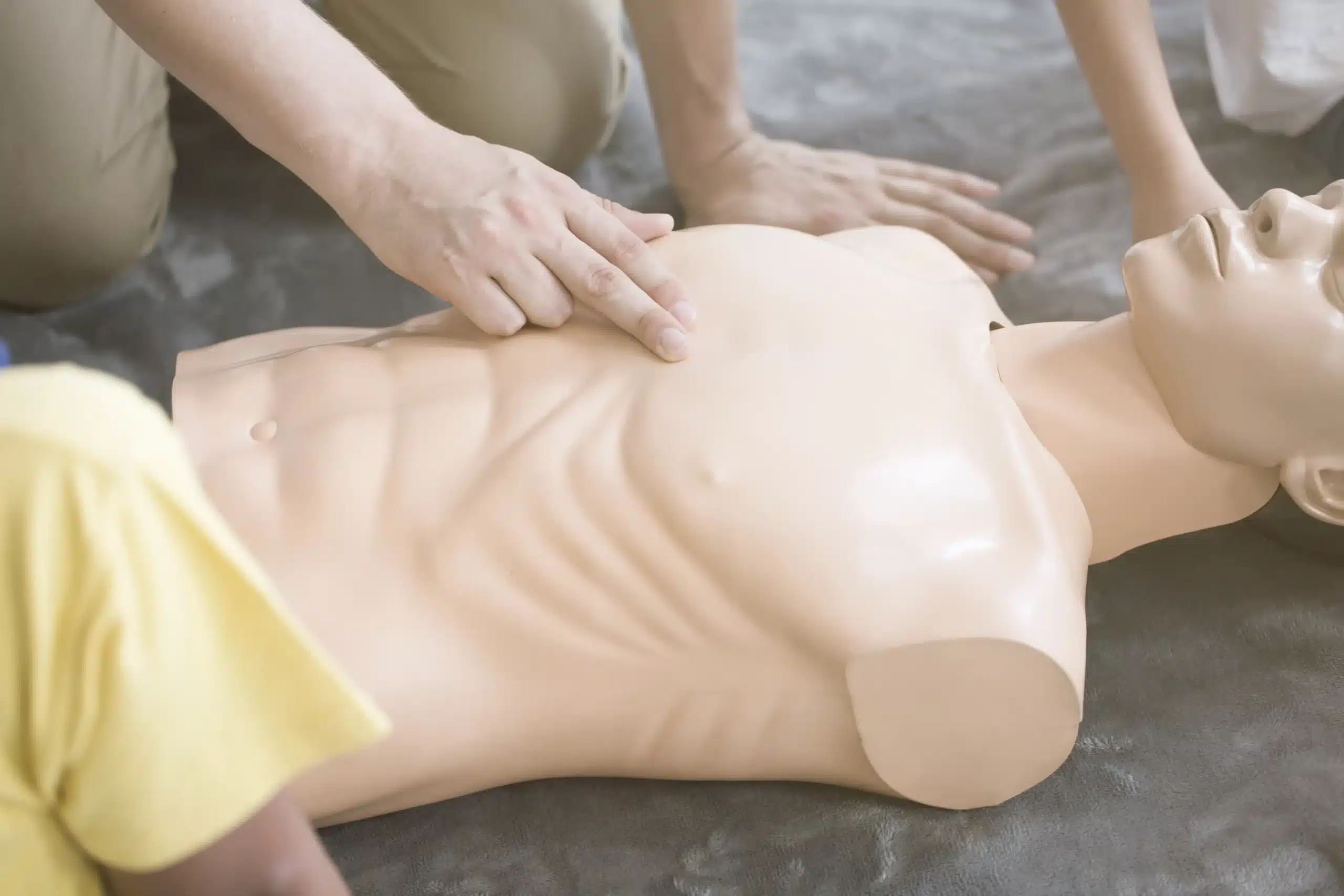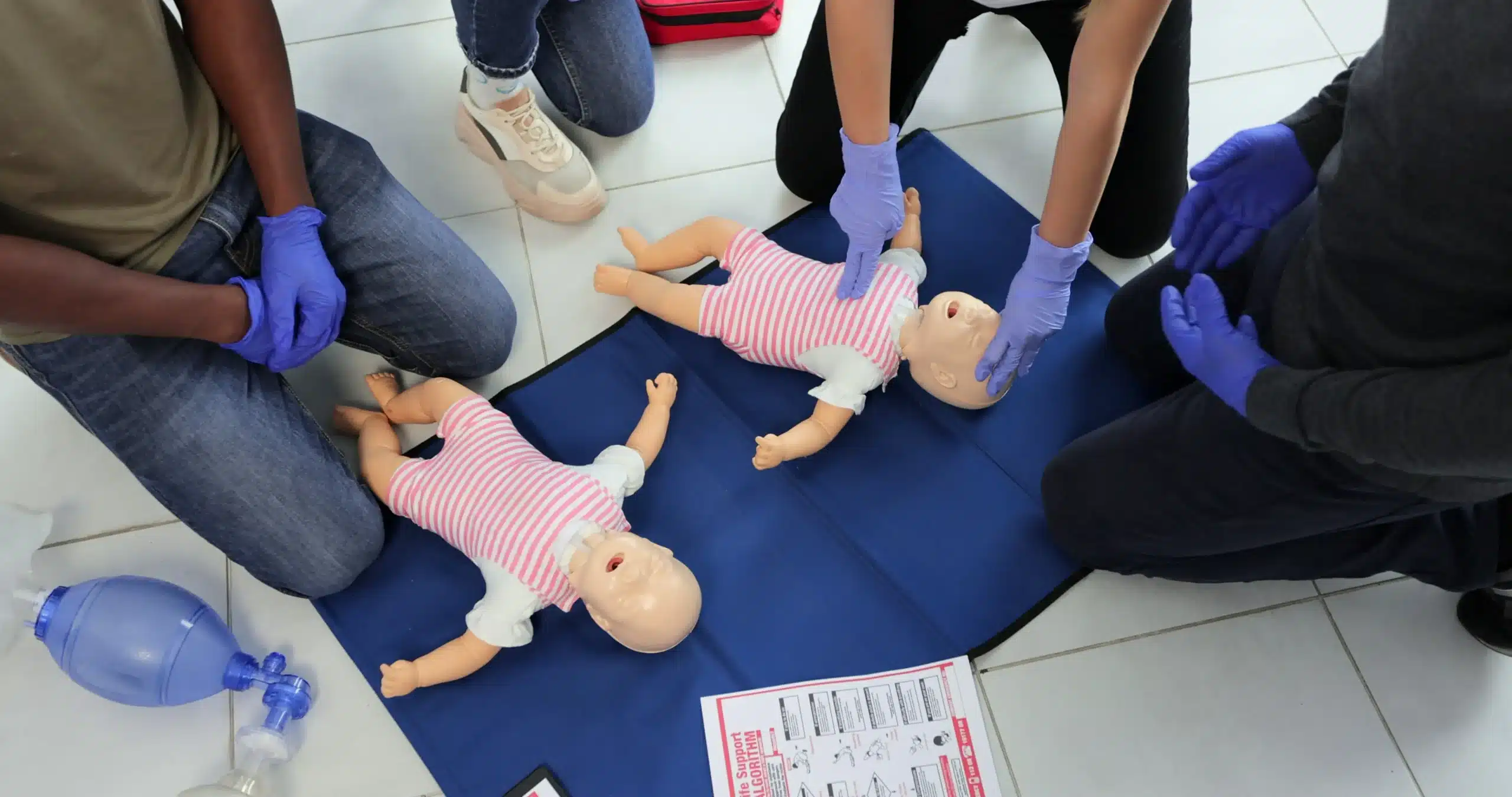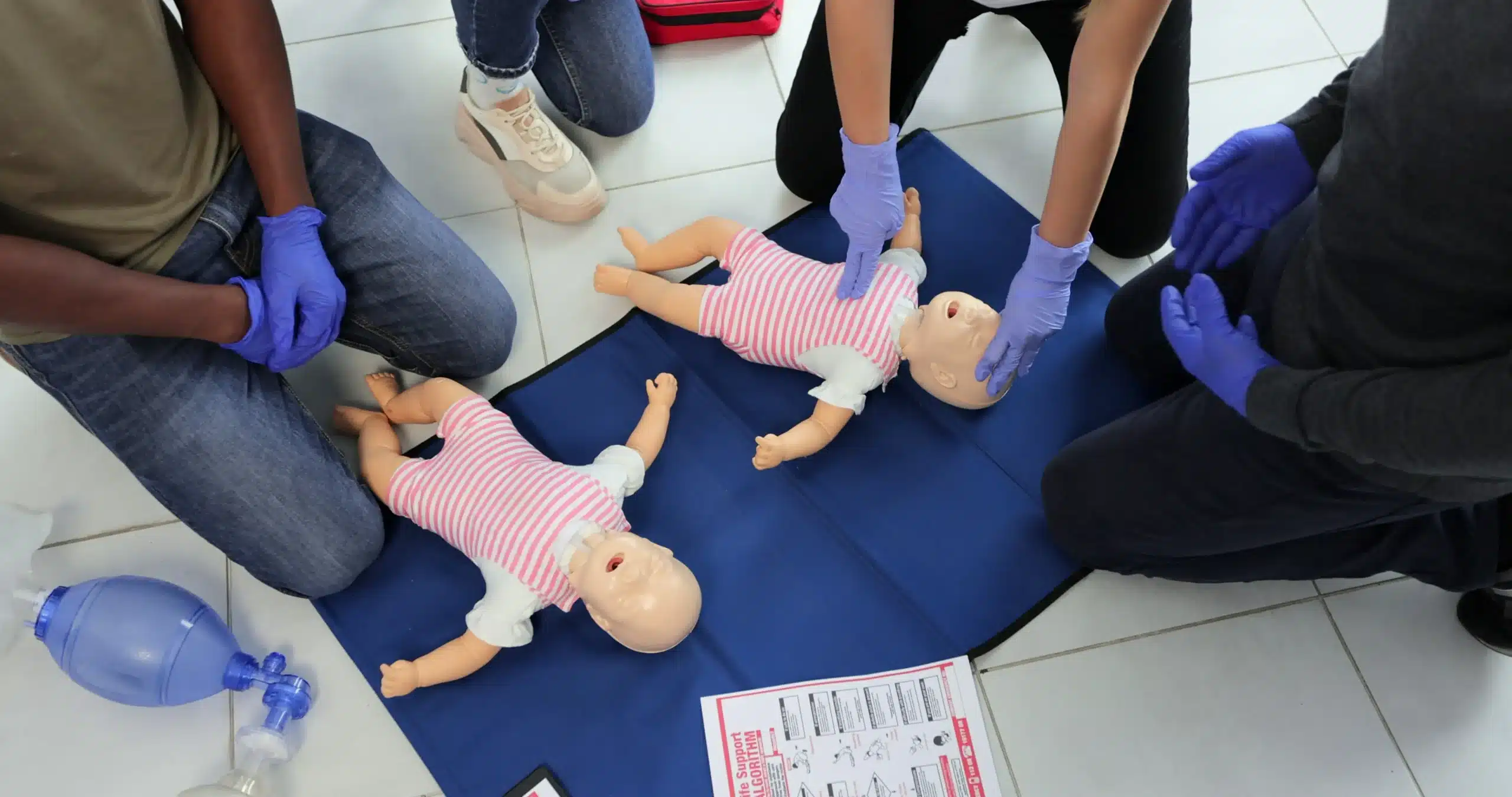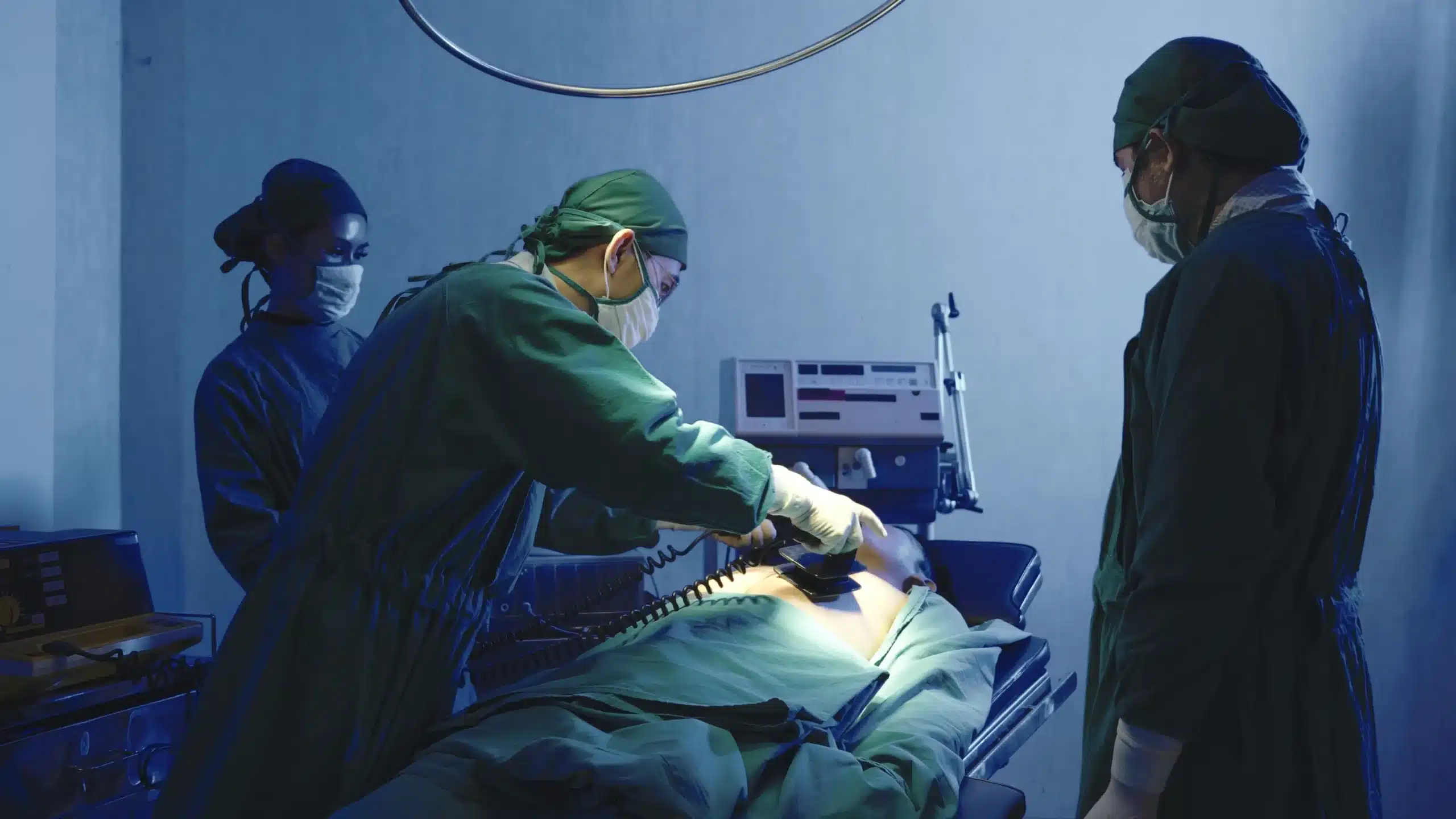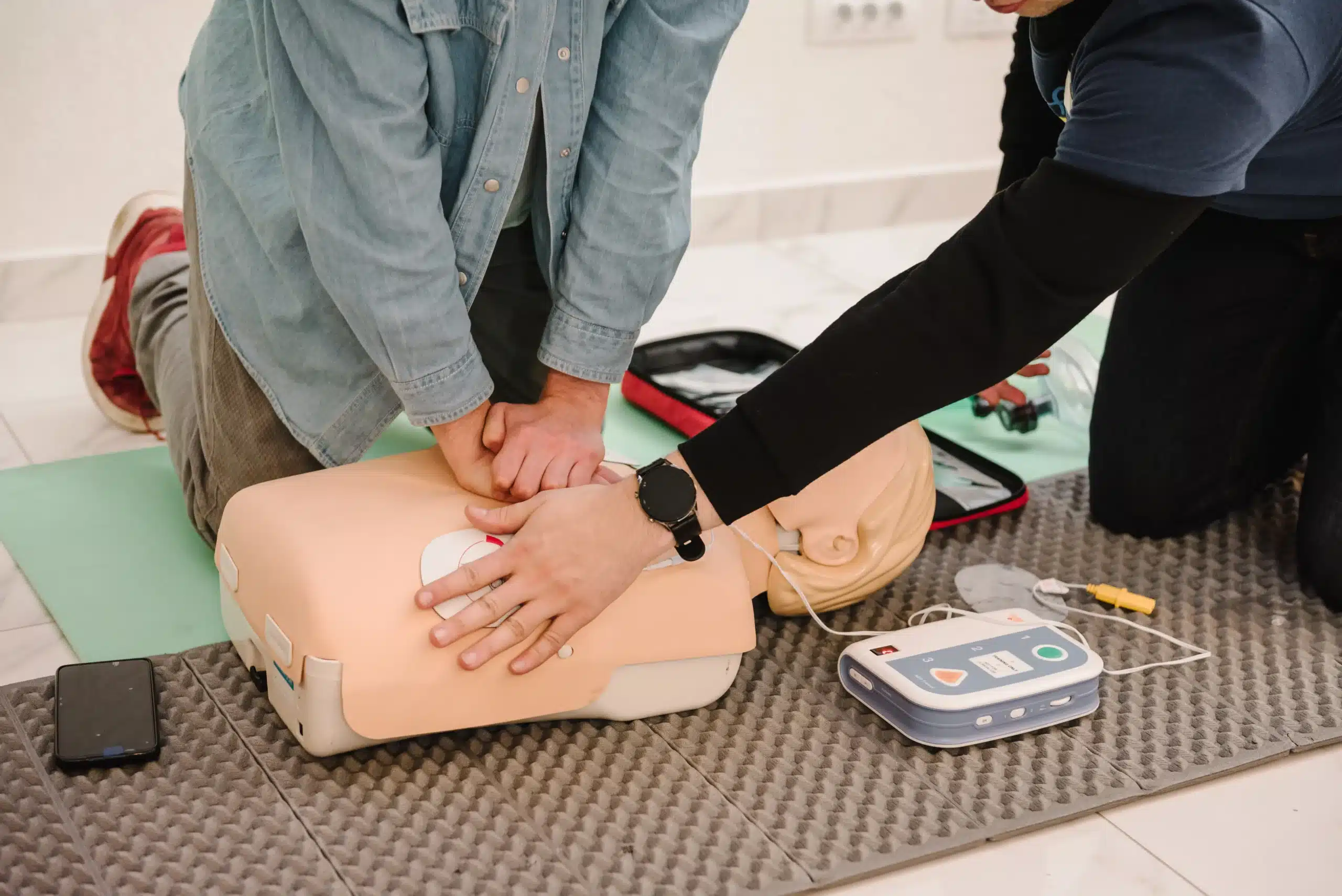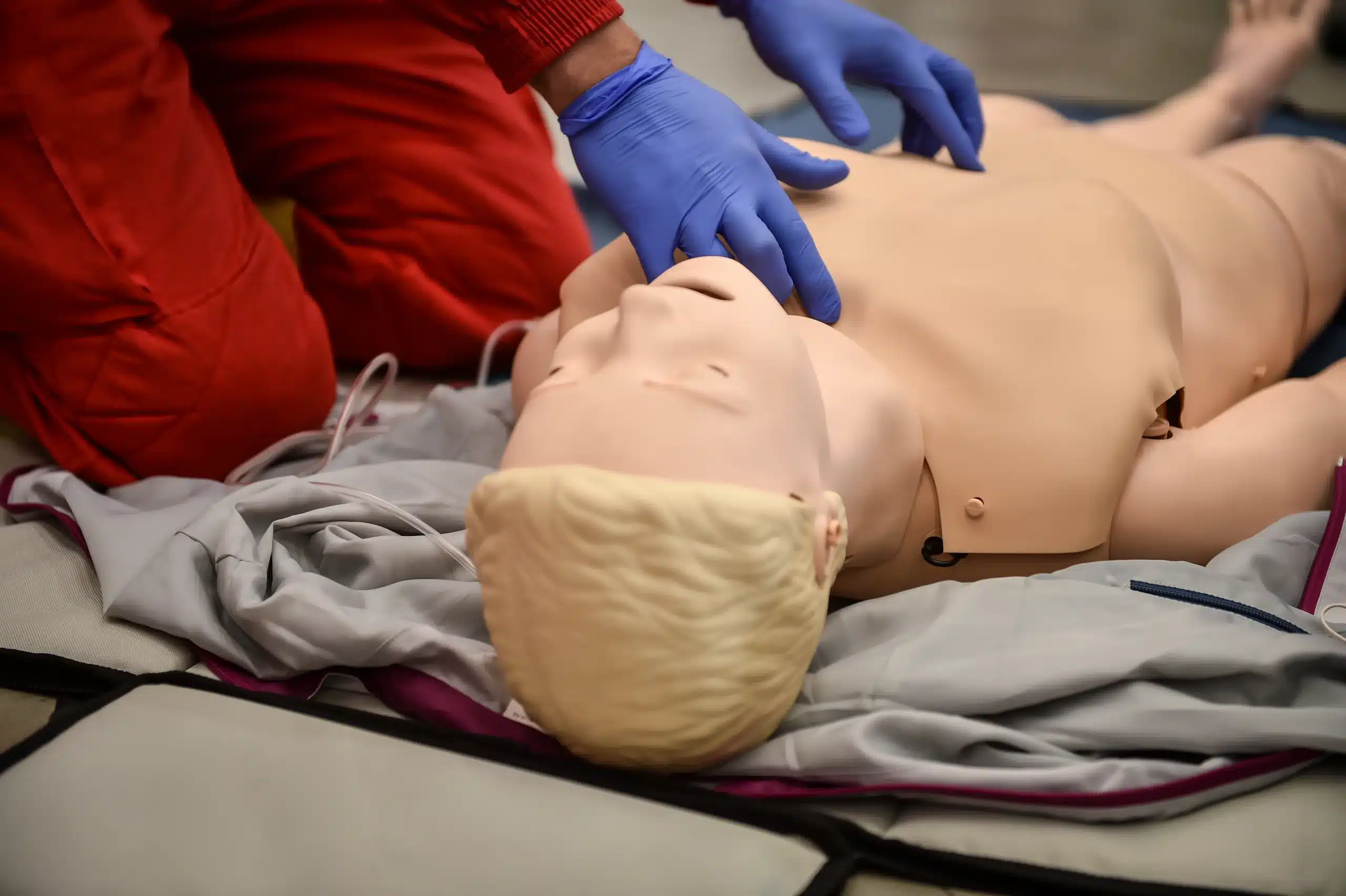As a healthcare professional in Berkeley, your BLS certification is more than just a credential—it’s a testament to your commitment to providing high-quality care. This guide is designed to help you find the perfect BLS renewal in Berkeley, so you can stay up-to-date on the latest life-saving techniques. We’ll cover everything from understanding the importance of BLS renewal to finding the right course format and provider in Berkeley. We’ll also explore cost-effective options, discuss how to prepare for your renewal, and offer tips for overcoming common challenges. Let’s make sure your BLS renewal is a straightforward and rewarding experience.
Key Takeaways
- Maintain your life-saving skills with regular BLS renewal: Staying current with the latest techniques and guidelines ensures you’re prepared to provide effective care in emergencies. Find a reputable provider like Safety Training Seminars or the American Red Cross that offers convenient scheduling and comprehensive training.
- Select the right course format for your learning style: From traditional in-person classes to flexible online programs and blended learning options, choose the format that best suits your needs and schedule. Consider factors like cost, location, and instructor experience.
- Simplify your BLS renewal with a little preparation: Review core concepts, gather required documentation, and confirm any technical requirements for online courses. Planning ahead reduces stress and ensures a smooth renewal process.
What is BLS Renewal in Berkeley?
If you’re a healthcare provider in Berkeley, keeping your Basic Life Support (BLS) skills sharp is non-negotiable. BLS renewal is how you recertify those skills and stay up-to-date on the latest life-saving techniques and best practices for medical emergencies. This section covers everything you need to know about BLS renewal in Berkeley.
What is Basic Life Support (BLS)?
Basic Life Support (BLS) covers the fundamental life-saving techniques used in medical emergencies. These skills, essential for healthcare professionals, prepare you to respond effectively to cardiac arrest, respiratory distress, and other critical situations. The American Heart Association (AHA) BLS for Healthcare Providers course offers comprehensive training in these essential techniques, providing the foundational toolkit for immediate care during those first few minutes of an emergency. Keeping your BLS certification current is vital for maintaining proficiency and delivering high-quality patient care.
Why Renew Your BLS Certification?
Renewing your BLS certification isn’t just a box to check; it’s a commitment to providing the best possible care. Regular BLS renewal ensures you’re practicing according to the most current guidelines, which are constantly evolving with advancements in medical knowledge and technology. Staying updated is crucial for effective emergency care and positive patient outcomes. Maintaining a current BLS certification is often a job requirement for many healthcare positions and demonstrates your dedication to professional development. Renewing your AHA BLS certification keeps your skills sharp and your knowledge current, allowing you to confidently respond to emergencies and provide the best possible care.
Find Top BLS Renewal Providers in Berkeley
Finding the right BLS renewal provider can feel overwhelming, but several reputable organizations and institutions in Berkeley offer high-quality courses. Here are a few options to explore:
Safety Training Seminars
Safety Training Seminars offers a comprehensive range of American Heart Association (AHA) certified courses, including BLS, ACLS, PALS, and First Aid. With classes offered daily across Northern California, they provide accessible training for groups and individuals. You can find their BLS renewal courses on their website, along with more information about their commitment to customer service and convenient scheduling.
American Red Cross
The American Red Cross is a well-known provider of BLS certification and recertification. They offer various course formats, including in-person and online options, to fit different learning styles and schedules. The Red Cross makes it easy to find a course that works for you.
Berkeley CPR Classes
Berkeley CPR Classes offers American Heart Association-certified BLS renewal courses. They focus on providing in-person training designed to equip you with the skills and knowledge needed to maintain your certification. Explore their website for details about their BLS renewal courses in Berkeley.
Local Hospitals and Medical Centers
Many local hospitals and medical centers in Berkeley offer BLS renewal courses, often designed for healthcare professionals. Contact your local hospital or medical center to inquire about their BLS renewal opportunities and find a convenient option that aligns with your work schedule. This can be a particularly good option if you’re already working in a healthcare setting.
Explore Course Formats and Duration
Finding the right BLS renewal course often depends on your learning style and schedule. Let’s explore the different formats available:
In-Person Renewal Classes
In-person BLS renewal classes provide a structured, hands-on learning environment. These courses offer direct interaction with certified instructors who can provide personalized feedback and answer your questions. Safety Training Seminars offers in-person renewal courses that follow American Heart Association guidelines, ensuring your certification meets current standards. This format is ideal for those who thrive in a traditional classroom setting and prefer face-to-face instruction.
Online Renewal Programs
For those seeking flexibility, online BLS renewal programs offer a convenient alternative. You can study at your own pace and complete the coursework from anywhere with an internet connection. Online renewal is legitimate as long as you choose a program from a recognized provider. This format is particularly beneficial for individuals with busy schedules or limited access to in-person training.
Blended Learning Options
Blended learning combines online and in-person training. You’ll typically complete the cognitive portion of the course online, followed by a hands-on skills session with an instructor. HeartCode BLS is a popular example of this format. This approach offers a balance of flexibility and practical application.
Time Commitment for Each Format
The time commitment for BLS renewal varies depending on the format. In-person courses typically require around four to five hours. Blended learning courses often involve one to two hours of online coursework, plus an additional two to three hours for the in-person skills session. The Red Cross offers more information on the time commitment for both in-person and blended learning. Consider your available time and choose the format that best fits your schedule.
Calculate Costs and Maximize Value
Getting your BLS certification renewed shouldn’t break the bank. Understanding the typical costs, what’s usually included, and how to find a discount can help you budget effectively.
Average Pricing for Different Course Types
BLS renewal courses in Berkeley typically range from $75 to $120. For example, providers like Berkeley CPR Classes offer a BLS course for around $120, covering the online coursework, skills test, and certification card. Prices can vary based on the provider, course format (online, in-person, or blended), and any extras offered.
What’s Included in Course Fees
Before signing up, understand what the price includes. Most BLS renewal courses cover training materials, the skills testing session, and your certification card. Some providers, like Berkeley CPR Classes, use blended learning, combining online learning (typically 1–2 hours) with a shorter in-person skills test (around 40 minutes). Clarify whether study guides, practice exams, or other resources are included.
Discounts, Promotions, and Group Rates
One smart way to save on BLS renewal is to look for discounts. Many providers offer discounts for group registrations, so if you have colleagues who also need to renew, consider registering together. You might also find discounts for students, military personnel, or first responders. Check with providers like Berkeley CPR Classes known for competitive pricing and occasional promotions. Safety Training Seminars also has group discounts on CPR training. Always ask potential providers about discounts—a little research can go a long way.
Review Prerequisites and Enroll
Before signing up for your BLS renewal course, take a few minutes to gather your information and confirm your certification status. This will make the enrollment process smooth and efficient.
Current Certification Status
First, check your current BLS certification status. If your card is still valid (meaning it’s at least 30 days away from expiring), you’re good to go ahead and enroll in a renewal course. You can often find convenient online options that allow you to renew without disrupting your busy schedule. If your certification has already expired, you might need to take a full BLS course instead of a renewal. Contact your chosen provider to confirm their policy.
Necessary Documentation
Next, gather the necessary documentation. Typically, this includes a copy of your current BLS provider card. Having this ready will streamline the enrollment process. Some providers may offer digital documentation options, so check their websites for specific requirements. For example, Safety Training Seminars outlines all required documentation on their BLS renewal page.
Skills Assessment Expectations
Most BLS renewal courses include a skills assessment to ensure you’re up-to-date on the latest techniques. These assessments usually involve hands-on practice of essential skills like CPR, using an AED, and providing relief for choking victims. Be prepared to demonstrate these skills during your renewal course. If your chosen course requires an in-person skills check, schedule it in advance to avoid delays in receiving your renewed certification.
Choose the Right BLS Renewal Course
Picking the right BLS renewal course isn’t just about checking a box; it’s about ensuring you’re truly prepared for those critical moments when your skills are needed. Let’s break down how to find the perfect fit.
Factors to Consider When Selecting a Provider
A good BLS renewal provider offers more than just a certificate. Look for a provider committed to comprehensive training, like those offering resources aligned with American Heart Association guidelines. Consider providers who offer continuing education opportunities and support beyond the initial renewal. Think about factors like instructor experience, class size, and overall reputation. Reading reviews and testimonials can offer valuable insights from other healthcare professionals.
Match Course Format to Your Learning Style
The best course format depends on how you learn best. The American Heart Association offers various learning options, including in-person and online courses. If you thrive in a hands-on environment and appreciate direct interaction, an in-person class might be ideal. If you prefer flexibility and self-paced learning, an online or blended learning program could be a better match. Consider your schedule, learning preferences, and access to technology.
Balance Cost, Convenience, and Quality
Finding the right balance between cost, convenience, and quality instruction is key. While cost is a factor, don’t let it be the only factor. Safety Training Seminars offers competitive pricing and various courses, including BLS, ACLS, PALS, and First Aid. Evaluate what each course includes—some might offer additional resources, practice materials, or certification fees bundled into the price. Consider the location and scheduling options to ensure the course fits into your life. Sometimes, investing a bit more in a reputable provider with experienced instructors can significantly impact your training quality.
Prepare for Your BLS Renewal
Getting ready for your BLS renewal doesn’t have to be stressful. With a little preparation, you can walk into your course feeling confident and ready to learn. Here’s how to get started:
Refresh Your Knowledge
One of the biggest hurdles people face with BLS renewal is keeping up with the latest guidelines and procedures. Things change, and it’s important to be aware of those changes before you take your renewal course. Take some time to review your current BLS knowledge. You can find resources and updated guidelines on the American Heart Association website. Brushing up on the basics will make the renewal process much smoother. Focus on core concepts like CPR techniques, recognizing signs of a heart attack or stroke, and using an AED. Even practicing on a pillow at home can help solidify these crucial skills.
What to Bring to In-Person Sessions
If you’re taking an in-person BLS renewal course, make sure you’re prepared. Bring a government-issued photo ID so the instructor can verify your identity. A notebook and pen are always helpful for taking notes. Comfortable clothing is also a good idea, as you’ll be participating in hands-on practice sessions. Check with your chosen provider, like Safety Training Seminars, to see if they have any specific requirements. Some providers may offer printed materials, while others might suggest bringing your own copy of the BLS Provider Manual.
Technical Requirements for Online Components
Many BLS renewal courses now offer online components, either as a standalone course or as part of a blended learning experience. Before you start, ensure your computer meets the technical requirements. This usually includes a reliable internet connection, a webcam, and a microphone. You may also need specific software like a video conferencing platform. Test your equipment beforehand to avoid any last-minute technical difficulties. If your BLS credentials are still valid (meaning they have at least 30 days before expiring), an online BLS renewal course can be a convenient way to maintain your certification. Contact your course provider to confirm their specific technical requirements and any recommended browsers or operating systems.
Learn About the BLS Renewal Experience
What to Expect During the Course
BLS renewal courses, such as those offered by Safety Training Seminars, refresh your essential lifesaving skills. These courses cover core concepts and techniques, including CPR, AED use, and relieving choking. Expect a blend of lectures, demonstrations, and hands-on practice. AHA-certified BLS renewal courses ensure you’re current with the latest guidelines for responding to medical emergencies. You can find in-person BLS renewal courses in Alameda, CA, with many providers also offering online or blended learning for added flexibility.
Hands-On Skills Assessment
Hands-on practice is crucial for BLS recertification. You’ll refine skills in key areas like CPR, rescue breathing, and AED use. These sessions offer a safe environment to practice and receive instructor feedback. Simulations may be used to build your confidence in responding to emergencies. This practical experience prepares you to apply your skills effectively when needed.
Address Common Concerns and Questions
Staying current with guidelines and managing costs are common concerns. Resources like the dos and don’ts of AHA BLS Renewal can help you stay informed. For cost considerations, explore options like group discounts at Safety Training Seminars. Understanding these aspects helps you prepare for your BLS renewal and select the right course. Contact providers directly with any program-specific questions.
Get Certified After Your BLS Renewal
Receive Your Certification
Once you’ve completed your BLS renewal course, you’ll receive your updated certification card. Safety Training Seminars offers same-day certification cards, so you’ll leave class ready to put your renewed skills to use. Many providers also offer digital certifications, allowing easy access to your credentials. Check with your chosen provider about their specific process for receiving your certification. A physical or digital card verifies your renewed BLS skills.
Validity Period and Recognition
BLS certification is typically valid for two years. It’s essential to keep your certification current to maintain your skills and comply with workplace requirements. The American Heart Association offers widely recognized and accepted BLS certifications. Confirm the specific certification requirements for your profession with your employer or relevant regulatory bodies. Staying up-to-date ensures you’re prepared to respond effectively in critical situations.
Plan for Future Renewals
Don’t wait until the last minute to renew your BLS certification. Mark your renewal date on your calendar and begin researching renewal courses a few months in advance. This gives you time to compare providers, course formats, and costs. Safety Training Seminars offers a variety of BLS renewal options to accommodate your schedule and budget. Planning ahead simplifies the renewal process and prevents a lapse in your certification. Consider setting reminders to ensure a smooth and timely renewal every two years.
Overcome BLS Renewal Challenges
Renewing your BLS certification is essential for healthcare professionals, but it can present challenges. Let’s break down some common hurdles and how to overcome them so you can approach your recertification with confidence.
Deal with Test Anxiety
Test anxiety is a common experience, but it doesn’t have to derail your BLS renewal. Preparation is key. Regularly reviewing BLS materials and practicing skills will build your confidence and reduce stress. Familiarize yourself with the exam format beforehand. This way, you’ll know what to expect and can focus on demonstrating your skills and knowledge. Remember, the goal is to refresh your life-saving abilities, and adequate preparation will help you succeed. If you find yourself struggling with significant test anxiety, consider mindfulness exercises or relaxation techniques to help manage stress.
Manage Time Constraints
Juggling work, family, and other commitments can make finding time for BLS renewal tough. Fortunately, flexible options exist. Online BLS renewal programs offer the convenience of learning at your own pace, fitting the training around your schedule. Break the material into smaller, manageable chunks, and set realistic study goals. Even short, focused study sessions can be effective. By incorporating renewal prep into your routine, you can avoid last-minute cramming and reduce stress. Time management tools can also help you stay organized and make the most of your study time.
Stay Updated with Changing Guidelines
BLS guidelines and best practices evolve, so staying current is crucial for providing effective care. Regularly review updated resources from the American Heart Association to ensure you’re up-to-date on the latest procedures. Consider attending refresher courses or workshops to reinforce your knowledge and address any changes. Staying informed not only benefits your patients but also ensures your renewal process goes smoothly, as you’ll already be familiar with the most recent guidelines. Subscribing to AHA email updates can also help you stay informed about any guideline changes or upcoming courses.
Related Articles
- BLS for Healthcare Providers in Oakland: A Practical Guide – Alameda CPR Classes
- BLS Certification in Alameda: Your Complete Guide – Alameda CPR Classes
- BLS CPR Courses in Alameda, CA – Alameda CPR Courses
- BLS Training in Alameda: The Ultimate Guide – Alameda CPR Classes
- Online CPR Classes in Berkeley: Your Complete Guide – Alameda CPR Classes
Frequently Asked Questions
How often do I need to renew my BLS certification? BLS certification is typically valid for two years. It’s a good idea to mark your calendar and start thinking about renewal a few months before your certification expires. This gives you time to find a course that fits your schedule and budget.
What’s the difference between BLS renewal and taking a full BLS course? A BLS renewal course is for healthcare providers whose certification is still current or recently expired. It’s a refresher course focusing on the latest guidelines and techniques. A full BLS course is for those who are new to BLS or whose certification has been expired for an extended period.
Are online BLS renewal courses accepted? Yes, online BLS renewal courses are accepted as long as they are from a recognized provider like the American Heart Association or the American Red Cross. Just make sure the course includes a hands-on skills assessment component, which is often required for certification.
How much does BLS renewal cost? The cost of BLS renewal varies depending on the provider and the course format. Expect to pay somewhere between $75 and $120. Look for providers who offer discounts for groups, students, or other affiliations. Sometimes, a slightly higher price might include additional resources or practice materials, so compare what’s included in the cost.
What if I’m nervous about the skills assessment? It’s completely normal to feel a little anxious about the skills assessment. The best way to combat those nerves is to prepare. Review the BLS materials, practice the skills, and familiarize yourself with the assessment format. Remember, the instructors are there to help you succeed. If you have any specific concerns, reach out to the course provider beforehand – they can often offer reassurance and additional guidance.



